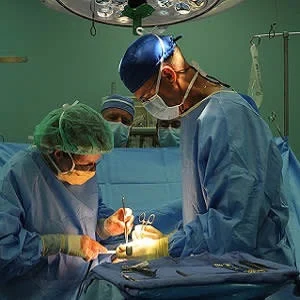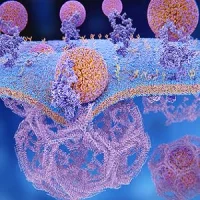A growing number of interventional cardiology procedures are being performed percutaneously, with a corresponding reduction of the hospital stay as well as similar or even better outcomes compared to open cardiovascular surgery. Interestingly, signs of a systemic inflammatory response (SIRS) have also been observed after interventions, such as implantation of stents, aortic stent-grafts, aortic valves, heart rhythm devices, and radiofrequency ablation, according to a review paper published online in the journal Vascular Pharmacology.
After interventional cardiology procedures, the paper says, SIRS occurs respectively in 40 percent and 50 percent of patients undergoing endovascular/thoracic aortic repair (EVAR/TEVAR) – in the form of post-implantation syndrome (PIS) – and transcatheter aortic valve implantation (TAVI) – in the form as S-TAVI. SIRS also affects 0.1 percent of patients undergoing implantation of heart rhythm devices – in the form of post-cardiac injury syndrome (PCIS) – but the exact prevalence in patients submitted to percutaneous coronary intervention (PCI) or electrophysiology procedures (EP) is unknown, probably because mild forms of PCIS remain undiagnosed.
Despite these data, the paper notes that "a comprehensive understanding of the triggers, pathogenesis as well as a common diagnostic/therapeutic algorithm of these syndromes is lacking." Since PIS is characterised by an intense inflammatory response, for instance, it would be interesting to investigate in PIS patients a potential association between serological inflammatory markers and metabolic evidence of inflammation as well as its relation with patient’s outcome.
Clinical presentation of SIRS includes fever, dyspnoea/tachypnoea, tachycardia, leucocytosis, weakness, chest pain and pericardial/pleural effusion.
According to the paper, several triggers have been identified, such as contrast medium, repeated ventricular pacing runs, major vascular and bleeding complications, woven polyester stent-grafts, aneurysm thrombus manipulation, use of active fixation atrial leads, coronary/myocardial microperforation, coronary microembolisation, and balloon dilatation/stent implantation.
"Nonetheless, these triggers converge to three main pathogenic pathways including leucocytes activation, endothelial injury/activation, and myocardial/pericardial injury, leading to intense cytokines release and SIRS manifestations," the paper explains. "Among them IL-6 [interleukin 6] plays a pivotal role and seems SIRS specific."
Notably, the nephrotoxic effect of contrast medium, and transitory suboptimal organ perfusion act either on the leucocytes and the endothelium with mutual amplification. Myocardial pericardial injury results from mechanical irritation by slightly protruding atrial leads, electrophysiology ablation catheters, blood leakage in the pericardial space following coronary/myocardial microperforation. This initial insult, the paper says, may provoke an immune-mediated inflammatory process involving auto-antibodies.
SIRS is generally managed with non-steroidal agents, with corticosteroids as second-line treatment in non-responders. However, as the paper points out, the prognostic impact of symptomatic therapy remains to be clarified.
"Although a benign evolution is reported after implantation of heart rhythm devices, PCI and EP, major adverse events have been reported after EVAR/TEVAR and TAVI both at short- and mid-term follow up. Therefore, close clinical surveillance along with inflammatory biomarkers and imaging may be warranted to improve the outcome of these patients," the paper concludes.
Source: Vascular Pharmacology
Image Credit: Pixabay
References:
Gorla R et al. (2018) Systemic inflammatory response syndromes in the era of interventional cardiology. Vasc. Pharmacol. Available online 12 April 2018. https://doi.org/10.1016/j.vph.2018.04.003
Latest Articles
SIRS, interventional cardiology, Cardiovascular surgery, systemic inflammatory response
A growing number of interventional cardiology procedures are being performed percutaneously, with a corresponding reduction of the hospital stay as well as similar or even better outcomes compared to open cardiovascular surgery. Interestingly, signs of a







